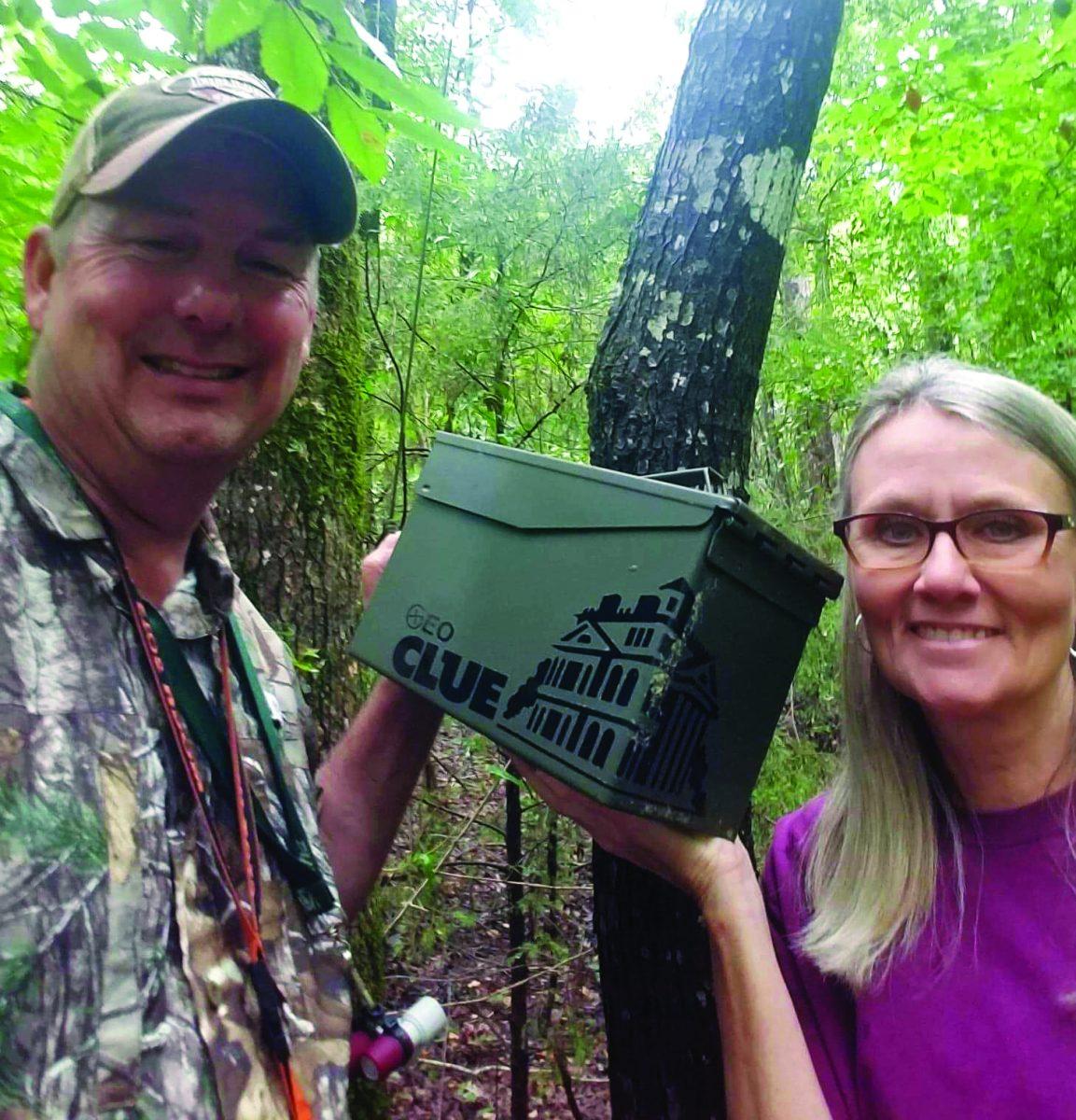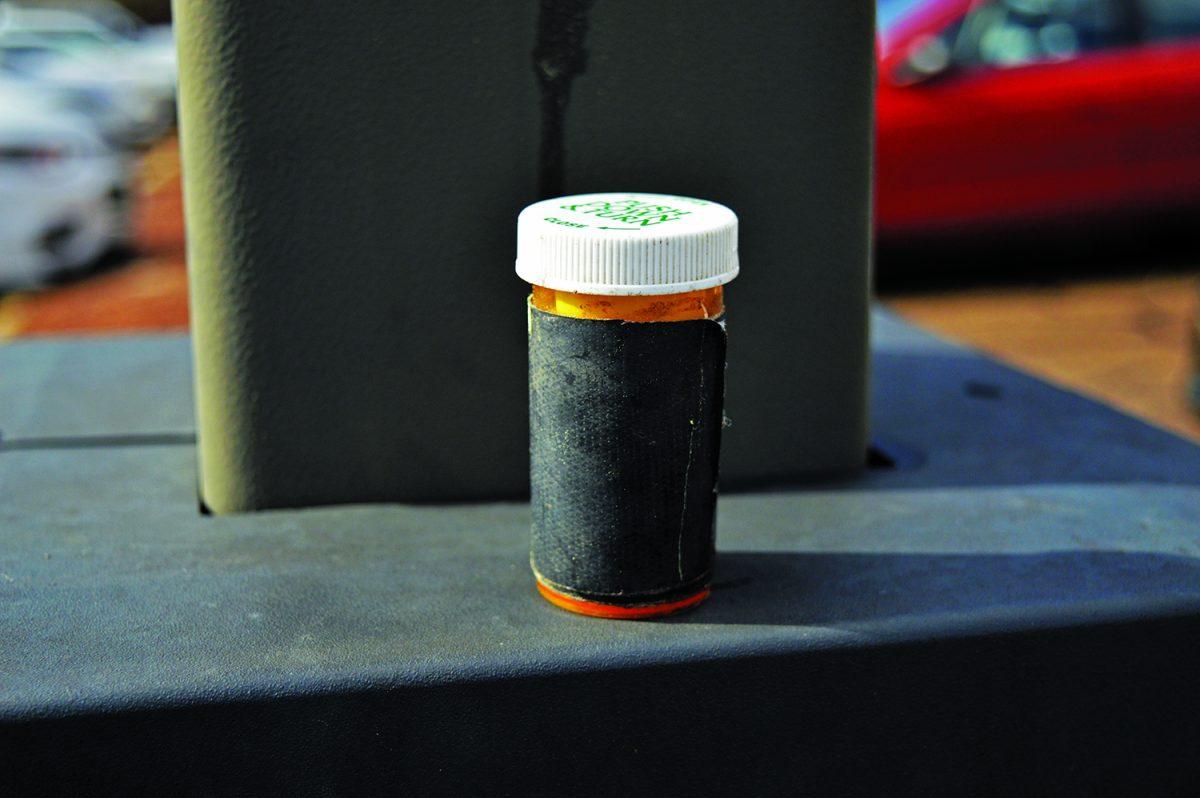Geocaching, a type of scavenger hunt conducted using an app on one’s phone, is a popular pastime in Starkville.
For Starkville, geocaching gained popularity in 2005. Shortly after picking up in the area, the Starkville Mafia was started. The Starkville Mafia is a group of individuals who go out together and geocache. The group has 30-40 members, with 20-25 active members. The group not only covers Starkville and the Golden Triangle area, but the entirety of Mississippi as well. As for the reason for starting the group, it was simply for camaraderie.
Geocaching is not just finding Tupperware in the woods, it is going on adventure in one’s hometown and making friends with people in the community. While it is following the coordinates given and signing a log book, in the end, it is so much more.
In a literal sense, geocaching is an outdoor activity. It involves the participants using global positioning system (GPS) technology to find ‘caches,’ which are the containers ranging from the size of medicine bottles to shoeboxes.
Not all caches are created equal; some are easy to find, while others are more difficult. Terrain is also an issue; since many caches are out in the open, some can be hidden off the beaten path.
Once the participants find the cache, they must sign the log book located inside of the cache to prove they found it. If big enough, some caches have ‘swag,’ or ‘stuff we all get.’ Swag are items left in a cache by other geocachers to trade. After signing the log book and grabbing any available swag items, the cache must be placed back into its designated hiding spot to be found later by the next geocacher.
The Starkville Mafia sets out to hide caches all over Starkville and the surrounding area, hoping to draw in geocachers from out of town. By doing this, the local economy can be stimulated. The group also holds Cache In Trash Out (CITO) events. These events involve the group visiting an area of Starkville and cleaning it up, such as parks and other outdoor areas.
As for Glenn Walker and his wife Frances Walker, members of the Starkville Mafia, they love geocaching. The couple has been searching for caches since 2008, and they have more than 8,000 finds and 322 hides.
“I have met all of these people because of geocaching, they’re all now very good friends,” Glenn Walker said of the group. “The people you meet, the places you go, all of it is just sharing the experience. I hope it continues to grow.”
Every geocacher is different, and as such, the reason for geocaching varies from person to person, even within the Starkville Mafia.
“I geocache just to get out and spend time with friends. My husband and I go on the weekends,” Frances Walker said. “Even when we travel for vacation, we geocache. It’s just fun.”
Sterling McCool said he geocaches to get outdoors and to do something with his family. Francine Vickers said she geocaches because it takes her places where she can meet new people. Her husband James does not geocache, but he acts as the driver for the Starkville Mafia whenever the group travels. Mark Guyton and Mike Hughes said they both geocache for the newfound places and fellowship.
Many people wonder why time is spent looking for medicine bottles or shoeboxes, only to find something like a pen or a whistle. Geocaching is not just about finding swag, or even finding the caches. Geocaching is about the adventure.
When a geocacher starts this activity by pulling up the application on their phone and selecting a cache to search out, the adventure begins. All it takes is following the compass and watching the amount of feet decrease. Once the participant is close enough to the cache, the application will alert them. Some caches have hints which made the finding process easier. Once a geocacher is in the immediate area of the cache, all they can do is look for it.
Finding a geocache after a search gives a feeling of excitement and fulfillment. Not only this, but when a cache is found, it shows the participant they have used critical thinking skills and deductive reasoning.
Geocaching has a worldwide presence and has existed since 2000.
All in all, geocaching is not just an activity, it is an ongoing experience that changes the perception of the participant. After geocaching, participants never look at a light pole or a stop sign the same way again.
This medicine bottle container holds a tiny treasure, which it is part of the activity geocaching.






















































































